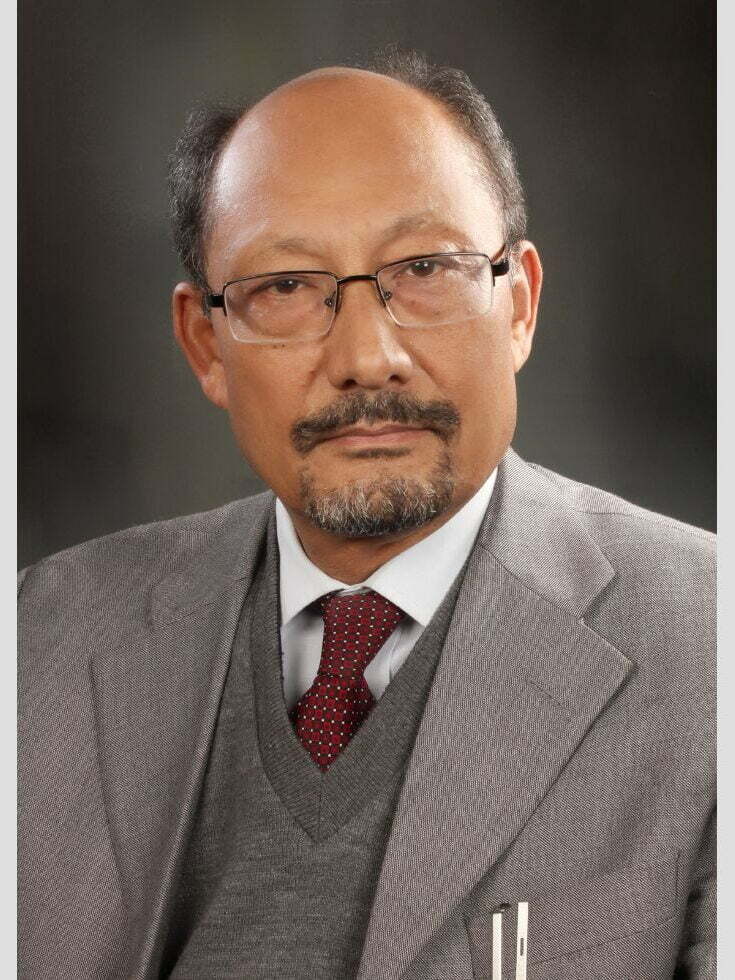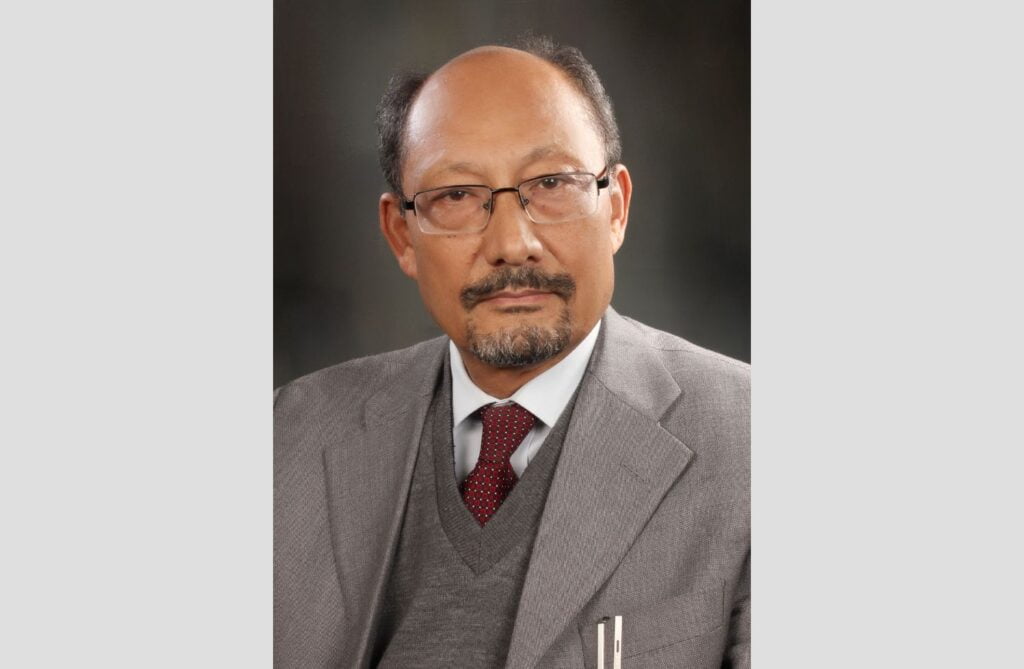
K.S. Kunwar’s career in the Indian Army began in early 1968 as a disciplined soldier. However, in order to advance his career, he joined Air India in its freight and logistics department.
Motivations
One of the early inspirations for him to pursue a career in the air cargo logistics sector came when he was given the opportunity to pass all of the cargo training courses offered by Air India Staff Training College, Mumbai with distinction among trainees from all over the world. His professional and administrative efforts were rewarded by the International Airports Authority of India (IAAI) in 1985, when he was appointed to supervise the newly established cargo terminals at the country’s major international airports.
The greatest satisfaction and inspiration came when one of the premier associations of the air cargo trade, the Southern Region of the ”Air Cargo Agents Association of India (ACAAI),” designated him as a ”Trade Friendly Officer” while discharging his administrative and managerial responsibilities at Chennai Airport as the head of the Cargo Terminal. This provided him a lot of satisfaction and incentive to keep this attitude in the service of the air freight trade fraternity with dignity, honesty, and sincerity for the rest of his career.
Challenges
Throughout his career, he faced multiple challenges. One of the challenges he encountered was the incident that occurred in 1985, when he first joined IAAI (now AAI), at the Chennai Airport Cargo Terminal. In 1986, IAAI (now AAI) was supposed to take over management of the cargo terminal at Chennai Airport from the handling agency M/S Air Freight with the assistance of AAI’s own staff, drawn from its various other departments, who had no experience or knowledge of the handling or operation of cargo at the cargo terminal.
As a custodian of cargo under the Customs Act of 1962, the management of an international cargo terminal is required to abide by a number of regulatory policies. These include the rules of numerous allied government agencies as well as the security guidelines set forth by BCAS when processing EXIM trade. Running the freight terminal with the unskilled crew was a real challenge. However, the management of the cargo terminal at Chennai Airport was carried out successfully with the aid of routine internal training under the stringent, diligent supervision of the then-cargo officers, including himself, and the remarkably inspiring team-building initiatives of the head of cargo.
His professional and administrative efforts were rewarded by the International Airports Authority of India (IAAI) in 1985
The greatest challenge he and his fellow officers encountered during their entire careers was when he oversaw the IGI Airport Cargo Terminal from 2006 to 2010. The privatisation of IGI Airport, including the cargo terminal, which was operated by AAI until early April 2006 and was subsequently taken over by a JV company, Delhi International Airport (DIAL), under PPP mode, occurred during this turbulent time.
The challenges could be summarised as follows:
- With the extraordinary trust that AAI and DIAL placed in him, he discharged the duty of turning over the cargo terminal on behalf of AAI to DIAL and then took it back from AAI on behalf of DIAL and ran it under a special type of arrangement between AAI and DIAL. It was a time of transformation.
- The second transfer occurred when the management of the cargo terminal was to be managed for the following three years, until early April 2009, with the assistance of AAI personnel then stationed at the terminal and a small number of personnel from JV Company (DIAL).
- The third transition period was particularly challenging because AAI +300 manpower had to return to AAI in accordance with the agreement (OMDA), and the IGI Airport Cargo Terminal had to be run again with the assistance of newly hired DIAL personnel and manpower drawn from known retired Air India, AAI, and other airlines known to him and his fellow officers, temporarily from the first week of April 2009 until the end of 2009, when the Cargo Terminal was outsourced to a private foreign company.
- The last hurdle was handing over control of the IGI Airport Cargo Terminal to CELEBI, a private foreign company that DIAL had hired to run and administer the IGIA Cargo Terminal. With the help of CELEBI’s management and labour, this turning-over procedure was successfully completed until the first quarter of 2010, to their complete satisfaction.
Traits for success
He believes that the following qualities would be crucial for someone to succeed in the air cargo logistics industry based on the personal experience he has gained while serving in various capacities:
- One should be educated and well-versed in the rules and regulations that apply to the handling, clearance, transportation, and management compliance of air cargo in their respective areas of responsibility.
- One should be thoroughly qualified in their particular fields of employment.
- Responsibilities should be fulfilled truly, diligently, and with commitment.
- A real piece of advice for company leaders is to treat every worker, regardless of their rank, with respect. Without asking, they will provide the company with their best effort.
- While carrying out one’s duties and responsibilities in the public sphere, one should be honest.
- One should have the courage to confront the problems facing the cargo sector at the proper level and come up with solutions, either on their own or collectively through the organisation.
Only then can we expect the simplicity of doing business in India when processing EXIM trade.
While carrying out one’s duties and responsibilities in the public sphere, one should be honest
Proud moment
He had to take a very firm stance against the government’s practise of choosing the lowest financial bidder company that lacked the necessary experience and knowledge of handling air cargo to provide satisfactory and discrepancy-free services to the users and trade of cargo terminals in order to maintain the standard of cargo handling services for them. He cautioned the airport management in writing against choosing the lowest (financial) bidder who had no experience or knowledge of successfully handling air cargo at air cargo terminals in order to preserve the sensitivity of the cargo handling contract at the cargo terminal and the reputation of AAI in the eyes of cargo terminal users and trade. The management did consider his appeal, but it took them a very long time to make a decision. As a result, the existing contractor had to continue working until the management made a decision, which had a significant and impractical financial impact.
He had to go before an internal vigilance inquiry that reported him to the CBI for an investigation since an alleged loss of money to the organisation became a problem. The CBI investigation cleared him of the accusations, which was to his advantage.
Due to his fair and honest intent, as well as his previous honourable performance and acts, the matter was concluded without affecting his career advancement. However, because the entire investigation process takes time in such occurrences, it sometimes damages an individual’s career growth.
He therefore firmly believes in KARMA during this Kalyuga.
Even though one could suffer in the process, one should accept all such obstacles for the industry’s and the organisation’s long-term improvement.
Staying updated
He periodically updates himself with the aid of browsing the websites of MoCA, MoC & I, CBIC, TIACA, IATA & ACI, etc., by participating in virtual or in-person seminars and conferences, by attending meetings hosted by the Ministry of Commerce & Industry (DPIIT, Logistics Department, DGFT), and MoCA (BCAS, ACLPB, ACPB), as well as online publications of the cargo and logistics industries.
As per K.S. Kunwar, the use of digitization in the online submission and approval of documents, or paperless documentation and processing, has significantly revolutionised the air freight transportation business.
Work-life balance
“I have always been a hard worker by nature, right from my first days of service until now, and I have maintained a principal of “not to listen” to any adverse comments made about my deeds, so I have to uphold that standard and have prioritised my professional work,” he claims. Second, I have been in great demand and have had high expectations from the cargo profession ever since my days at Air India.
With the aforementioned dedication, I must subvert some needs and requirements of my family members, who have been through a lot of hardship. As a result, the family has made compromises and has been following the adjustment principle up to this point.
Recommendations to Freshers
His advice to young people entering the air freight logistics profession has been to embrace the field with all of their heart and soul, work hard, and show dedication. He asserts, “Learning has no age limit, so you must be fully competent in your job profile to keep the likelihood of error to a minimum. Always update your skill knowledge by participating in upskilling training programmes. Take on challenges within your control and carry them out with an open mind. He continues, “Be sincere to your organisation and give regard to your seniors as well as to your juniors up to the base-level workers. They will give their undivided support in the fulfilment of your tasks, which is something that people typically overlook.
Learning has no age limit, so you must be fully competent in your job profile to keep the likelihood of error to a minimum
